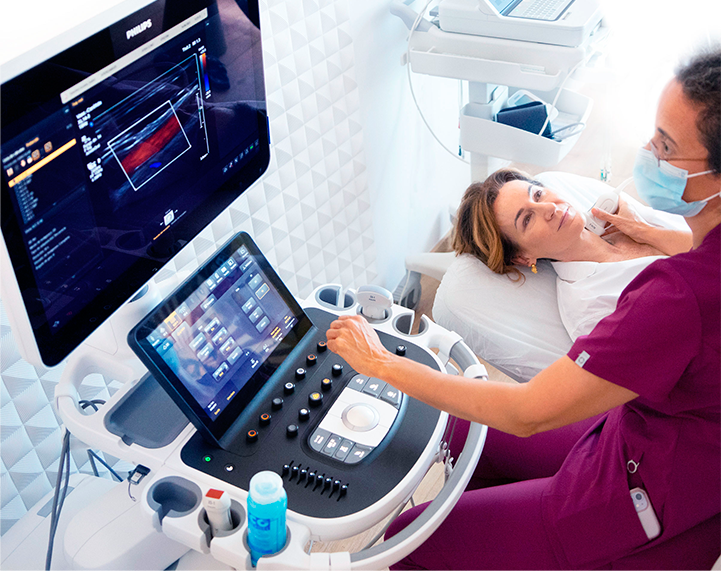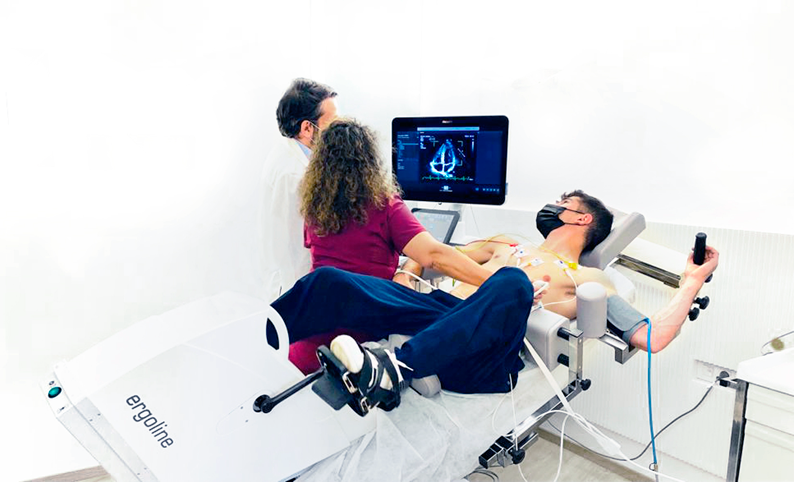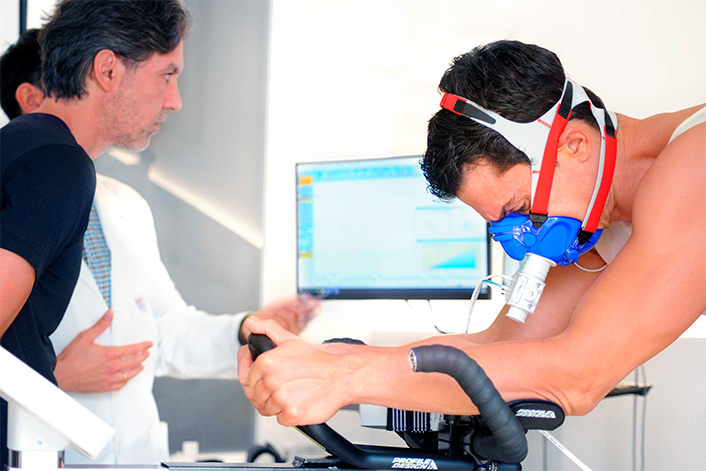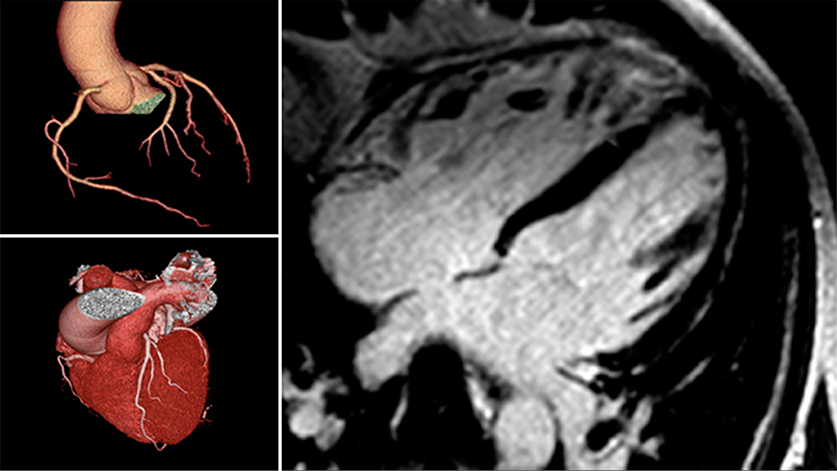
Cardiovascular Consultation
All our protocols are customized according to the characteristics and needs of each patient , avoiding unnecessary tests and focusing the diagnosis to what is really important.
Our extensive experience in the prevention, diagnosis and early treatment of cardiovascular pathologies makes us a national and international reference in the treatment of the main diseases affecting the heart: ischaemic heart disease (heart attack and angina pectoris), cardiomyopathies, valvulopathies and aortopathies, arrhythmias, congenital heart disease in adults and heart failure.
Cardiologists, nurses and imaging technicians, with the best and most modern technology, allows us to improve the prognosis of the disease thanks to an early diagnosis, exhaustive and personalized follow-up of the patient and education in heart-healthy habits and lifestyle.
Services

2D and 3D Vascular Ultrasound
Ultrasound is a technique that allows to visualize the wall of arteries, measure the thickness of their different layers and detect both atheroma plaques and the presence of aneurysms or dilations. Thus, the presence of atherosclerotic disease can be easily and accurately revealed even before the first signs or symptoms appear.
Unlike angiography (the popular catheterization), this test does not use X-rays and therefore does not involve exposure to ionizing radiation. Three-dimensional carotid ultrasound is so new that it is currently not available for clinical use in almost any hospital.
The added advantage is that it makes it possible to see not only the plaque deposited in the arteries but also to quantify the volume of plaque. This helps to estimate better cardiovascular risk and helps personalized clinical management.
2D and 3D Echocardiogram
The echocardiogram provides a wealth of information on basic cardiac anatomy, including the orientation and position of the heart, venous return, the connection of atria and ventricles, and the origin of the great vessels. It is a cardiac imaging scan based on ultrasound, the frequency of which is not audible to the human ear.
Is a test used to visualise the structure of the heart to study its haemodynamic function, i.e. its ability to pump blood. Advances in AI and automation in echocardiography provide robust and reproducible results essential for the effective diagnosis and treatment of heart failure.
It enables accurate diagnosis of congenital and acquired valvular, heart muscle and aortic diseases, and classifies them according to their severity and aetiology.


Stress echocardiogram
It seeks to diagnose cardiovascular pathologies that do not present symptoms when the patient is at rest but become symptomatic when the patient exercises. It is a test of physical endurance through various aerobic exercises in a monitored environment in order to analyse how the heart behaves in these conditions. A transducer is moved across the chest to obtain images of the heart in motion.
It is important, from a certain age onwards, for all those who want to lead an active life focused on sport. It is also performed in patients with already diagnosed coronary artery disease because stress echocardiography allows for a more accurate assessment of whether the medication the patient is taking is sufficient.
Ergospirometry
It is a diagnostic test that evaluates the patient’s metabolic, cardiac and respiratory response to exercise. A stress test where respiratory exchange and pulmonary ventilation are analyzed. It determines the functional capacity and the maximum training degree to optimize the controlled performance of professional or amateur athletes. It allows to rule out the risk of acute myocardial infarction and to know the ventilatory thresholds in order to plan training according to the objectives.
An exclusive service with state-of-the-art devices such as a gas analyser and an ergometer. It completes the assessment of cardiovascular or respiratory risk prior to surgery, the response to different treatments, the differential diagnosis in cases of dyspnoea and the diagnostic and prognostic staging of cardiopathies and pneumopathies.


Cardio-CT and Cardio-MRI advanced imaging analysis and diagnostics
Make
an appointment
Leave us your details and we will contact you.